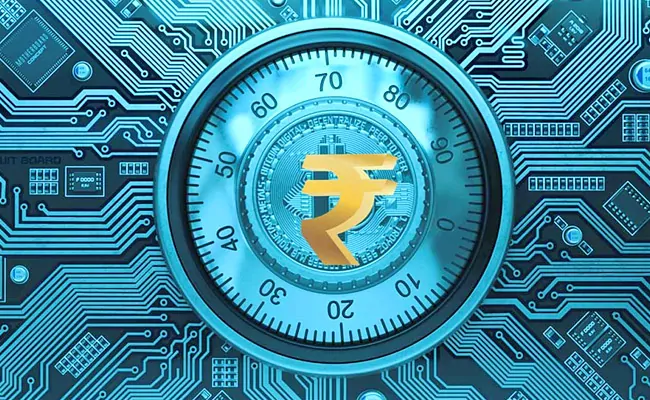
India's journey towards adopting the digital rupee, also known as e-rupee or Central Bank Digital Currency (CBDC), highlights the relentless pursuit of innovation and user-centric solutions. The Reserve Bank of India (RBI) is dedicated to improving the Central Bank Central Banking (CBDC) framework, with a major focus on enhancing privacy and anonymity. At the Bank for International Settlements Innovation Summit, RBI Governor Shaktikanta Das unveiled a pioneering strategy to ensure it offers the same level of anonymity as physical cash, setting a global standard for cryptocurrencies in India.
The mystery of anonymity
since Launching CBDC In late 2022, privacy concerns surrounding digital currency intensified. Its electronic nature, in contrast to the anonymity inherent in physical cash, has sparked discussions about the possibility of a transaction data trail that can be accessed by authorities. This situation has ignited a debate about finding the right balance between technological advancement and maintaining personal financial privacy.
RBI's innovative approach to e-rupee
To mitigate these privacy concerns, the Reserve Bank of India has been exploring innovative solutions that combine legislative and technological measures. Governor Das noted that anonymity issues can be effectively addressed through these means, including permanent deletion of transaction data, to protect user privacy.
advertisement
Permanent deletion of transactions
The main strategy followed by the Reserve Bank of India (RBI) to enhance privacy protection involves permanently deleting all its transaction records. This pioneering approach aims to provide the same level of anonymity as cash, ensuring that the digital currency does not leave a digital footprint, thus addressing the concerns of potential users.
Offline functionality and programmability
In its endeavor to make it more user-friendly and accessible, the Reserve Bank of India (RBI) is also developing offline functionalities of the digital currency. This feature is essential to ensure that transactions can be done even in areas with limited internet connectivity, and is an important step towards enhancing the usability of the digital currency across India's diverse landscape.
Moreover, the Reserve Bank of India (RBI) is enhancing the Central Bank Digital Currency (CBDC) with a programmability feature, which will allow transactions to be executed for specific purposes. This innovation is set to open new use cases for the digital rupee, significantly enhancing its potential for financial inclusion among India's diverse population.
Interoperability with UPI
Despite the Reserve Bank of India (RBI)'s push for the adoption of central bank digital currency (CBDC), Unified Payments Interface (UPI) remains a popular choice among retail users. In response, the central bank has ensured interoperability of the CBDC with UPI, facilitating seamless integration and transactions across platforms, thus enhancing the attractiveness of the digital currency.
Unprofitable Central Bank Digital Currency (CBDC).
To address the potential risks of bank disintermediation, the Reserve Bank of India has strategically made the e-rupee non-rewarding. This decision ensures that the digital currency complements the traditional banking system without undermining its stability, allowing for harmonious coexistence.
Expanding CBDC distribution
To expand the scope of digital currency, the Reserve Bank of India recently included non-banking institutions in its pilot programme. The move, which leverages its extensive distribution networks and customer bases, aims to enhance digital currency accessibility and adoption across India, marking an important step in the evolution of digital currency.
Address privacy concerns
The Reserve Bank of India's (RBI) commitment to address privacy and ensure protection of user data in the digital currency ecosystem is not new. Leading figures like Governor Das and Deputy Governor T Rabi Sankar have consistently emphasized that technology provides the means to overcome these challenges, demonstrating the RBI's dedication to marrying innovation with user confidence.
Lessons from the past
The Reserve Bank of India's current strategies also draw insights from the past. In 2021, former RBI Governor Dr. Subbarao concerns about the data privacy implications of central bank digital currencies, highlighting the need for a robust data protection framework. The RBI's focus on permanent deletion of transactions and other technological measures can be seen as a direct response to these early concerns, demonstrating the central bank's commitment to protecting privacy, learning, and adapting.
Towards a truly anonymous system
The Reserve Bank of India (RBI)'s innovative approach to making the e-rupee as anonymous as physical cash marks a milestone in the evolution of digital currency. By leveraging legislative and technological solutions, the central bank aims to create a digital currency that not only provides the convenience of digital payments, but also maintains the privacy and anonymity that users expect from traditional cash transactions, ensuring strong privacy protection.
As the pilot progresses and the central bank continues to refine its strategies, the world will be watching closely. India's success in striking the right balance between technological advancement and user privacy may set a new global standard for the future of digital currencies, emphasizing the importance of protecting privacy.
Disclaimer: This article is for informational purposes only and should not be considered financial or investment advice. Cryptocurrency investments are subject to market risks, and readers should conduct their own research and consult with professionals before making any investment decisions. Chain News Network is not responsible for any market losses.
advertisement
